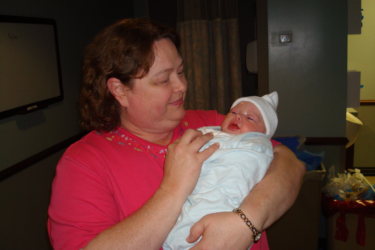
The Sandwich Generation
If you’re a parent between the ages of 35-54, there’s a good chance you’re caring for more than just your children. It’s estimated that 25 percent of adults with children are also responsible for elder care. Dubbed the “sandwich generation,” parents are feeling the squeeze on both sides, one hand holding their child's tiny hand, the other holding the hand that guided them through their childhood.
According to the Bureau of Labor and Statistics, from 1900-2000, the life expectancy in the United States increased from 47 to 76 years. Combine that with today’s recent trends of couples starting families in their mid-to-late thirties, and the pressure increases for this generation as they struggle to balance the emotional, physical, and often financial impact on their own families. Caring for your family on both ends of the age spectrum can be emotionally and physically draining. If you’re feeling the pinch, here are ways to put some balance back into your helping hands.
Keep the lines of communication open. First and foremost, it is easiest to help aging family members if there is a plan in place long before there is a need for one. Have honest conversations with your parents about what they want and their plans for the future should they need assistance. Social worker Sherry Smelley’s experience with this comes not only from a professional space, but also from a personal one in caring for her own aging parents. While raising four children ages 12-20, Smelley faced the declining health of both of her parents. “My parents and I talked a lot about aging and what it could mean for us both. We discussed all the possibilities at length so as the days darkened, I was able to imagine how they would have responded if they were healthy. And I knew they were appreciative and loved every effort and kindness.”
Stay Organized. Baton Rouge mom Amy Foreman handles multiple generations, caring for her mother and grandfather while raising her own family. Amy suggests, “Find systems that work for you and your family that will help you stay organized. Write everything down.” For example, Amy utilizes today’s latest technologies by color coding doctor appointments for each family member in her phone's calendar, and setting up notifications from the pharmacy on both her phone and her mother’s phone.
Don’t bear the burden alone. Too often caregivers slip into the “martyr” role and try to carry the load for everyone. Although you might feel like there is no time for anything, take some time to research your options for professional care. Look into respite care or long-term care if necessary. In addition to professional help, be open-minded when others offer to help. Smelley says, “Too often we just politely dismiss offers of help from friends, but don’t be afraid to say yes!”
Involve the family. Social worker Robin Marrero says, “Although women sometimes automatically take the caretaking lead, don’t just ‘assume the role’ on your own. Ask family members to share the load, they are often quite willing to do so.” In addition to reaching out to siblings, also consider appropriate ways in which you might include your own children in helping with caregiving. Marrero says, “It’s actually good for children to see the cycles of life and what happens to our bodies when we age. It teaches them the importance of taking care of ourselves, and eventually, taking care of others.” Keep in mind that with some ailments of the elderly such as Alzheimer’s and Dementia, it is important to spend time explaining to your children the process since you can’t necessarily “see” what is happening.
Foster relationships. Caring for your parents takes a toll not only on you, but also on your spouse and children. When you are investing time in your parents at the same level that you are for your children, there is less time for everyone. Foreman shares that it’s hard work balancing your career, your children, and particularly, your spouse. “Do your best to communicate. Be clear about expectations, and always explain what is going on and when, and why it’s important.”
Beware of caregiver “burnout”, and be deliberate about self-care. Smelley and Marrero both advise that you take time out for yourself, whether or not you think you have it, so that you can still be there as a caregiver for your parents and children. Marrero adds, “When thinking about self-care, look at things that give back to you, because caring for others is taking ‘energy out.’” Choose things that are pleasurable to you whether it is traveling, spending time with friends, participating in a hobby you enjoy, joining a support group, or pampering yourself. Exercise plays a crucial role in self-care. Research shows that yoga helps calm your body when facing stress, anxiety, or trauma. Any form of aerobic exercise is also helpful, especially if done on a daily basis.
Enjoy the silver linings. Sometimes the most difficult challenges in life help us to see the most beautiful moments more clearly. Foreman recalls how much she cherishes simply listening to old stories from her grandfather. Don’t take these little moments for granted. Take pride in the fact that yours is the hand providing the link between one generation and the next. ■





